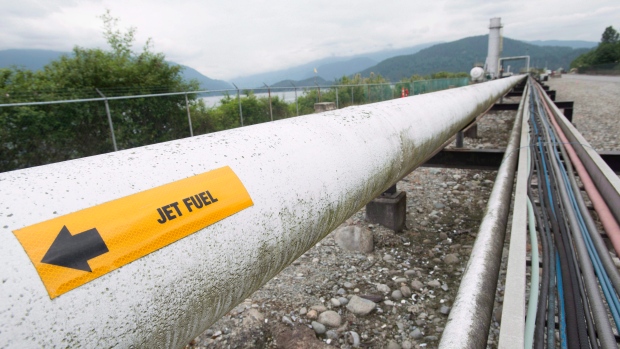Jun 16, 2016
NEB’s Trans Mountain decision has B.C. and Alberta residents at odds: survey
, BNN Bloomberg

British Columbia and Alberta are close in proximity, but their residents are far from agreeing on the National Energy Board’s decision to conditionally approve the expansion of Kinder Morgan’s Trans Mountain Pipeline, according to an Angus Reid survey released Thursday.
The survey found that 63 per cent of Albertans agreed with the NEB’s recommendation to approve of the $6.8-billion Trans Mountain expansion, subject to 157 conditions, last month. In contrast, only 41 per cent of British Columbians thought it was the right choice.
“It certainly makes it more tricky for anyone who has to make a decision on this,” Shachi Kurl, the executive director of the Angus Reid Institute, told BNN in a phone interview. “How do you square that circle?”
Ultimately, the federal government will make the final call on whether the expansion will happen. Kurl said it would be difficult for Ottawa to pick a side – especially if it goes against the sentiment of people who voted liberal in the last federal election.
The numbers reveal that economic and environmental reasons contributed to the contrasting opinions in Alberta and B.C. Promoting economic growth was a greater concern for Albertans (60 per cent), whereas more British Columbians said protecting the environment was very important (55 per cent).
But as Kurl noted, there’s value in considering the views of the entire country, not just one province. The survey found the overall sentiment among Canadians was in line with the opinion of British Columbian participants (41 per cent). Only one quarter of respondents in the country disagreed with the decision.
One thing both Albertans and British Columbians did agree on is the likelihood of the final approval for the project. Seventy-four per cent of respondents in British Columbia, and two third of residents in Alberta said they were sure the expansion would pass the final stage of approval.
The expansion project involves laying 987km of new pipe from Edmonton to Vancouver, creating a twinning pipeline beside the original one that has been operating since 1953. It would triple capacity of the line to 890,000 barrels per day.



